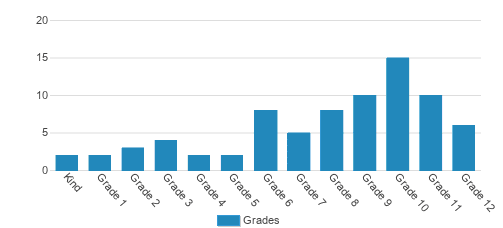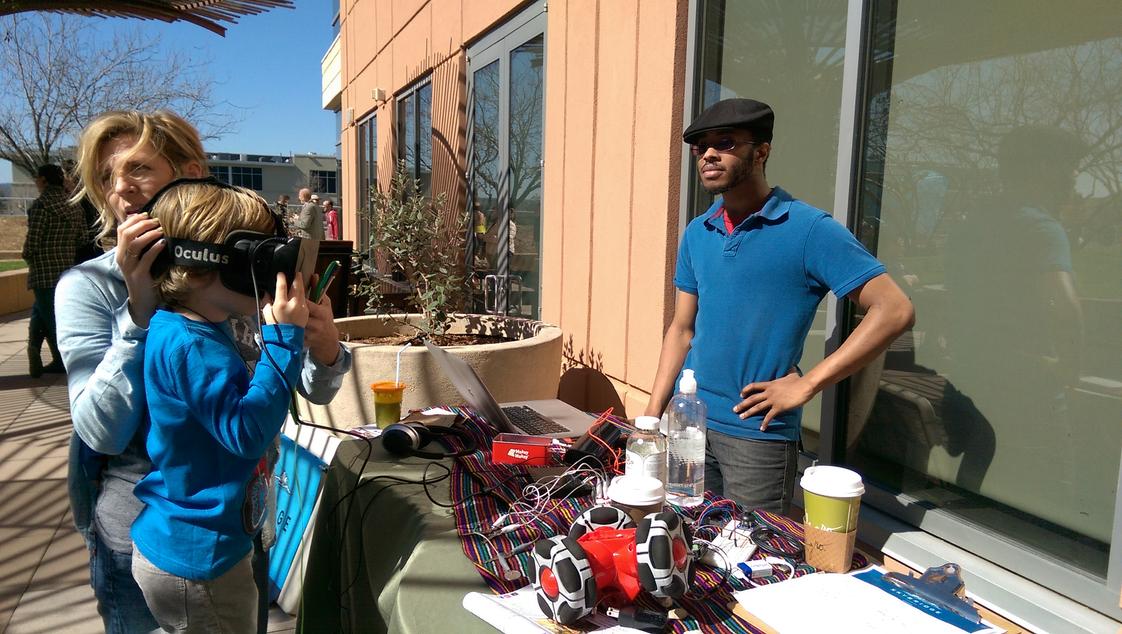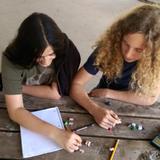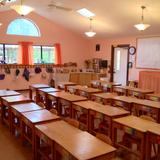Appamada School is a private K-12 program that is student-centered, process-based, and focuses on celebrating the individuality of each student.
Our reverent culture supports our students in the inside-out process of becoming the most authentic version of themselves and allows them to engage with academics in a vital, meaningful way.
Quick Stats (2025)
- School Type: Alternative School
- Grades: Kindergarten-12
- Enrollment: 77 students
- Yearly Tuition: $18,500
- Average class size: 12 students
- Application Deadline: None / Rolling
- Source: Verified school update
School Overview
School Type
Religious Affiliation
Grades Offered
Grades Kindergarten-12
ADD/ADHD Support
Yes
Year Founded
2011
Student Body
Total Students
77 students
Student Body Type
Co-ed
Students by Grade

Academics and Faculty
Total Classroom Teachers
14 teachers
Student : Teacher Ratio
6:1
National avg.: 13:1
Average Class Size
12 students
Classroom Dress Code
Casual
Tuition and Acceptance Rate
Admission Deadline
None / Rolling
Yearly Tuition Cost
$18,500
% on Financial Aid
15%
Admissions Director
Ariel Dochstader Miller
Admissions Associate
Dave Haumer
Extracurriculars
Total ExtracurricularsTotal Extra-curric.
5 extracurriculars
ExtracurricularsExtra-curric.
Club or Organization:
Art Club, Pokemon Club
Arts and Music Programs:
Arts Program, Music Program, Theatre
Art Club, Pokemon Club
Arts and Music Programs:
Arts Program, Music Program, Theatre
School Notes
- Appamada School is a student-centered and process-based program that focuses on creative growth rather than outcomes. This fosters the nonlinear nature of learning that comes naturally to people.
- Appamada nurtures a reverent culture that allows students to feel safe being their authentic selves. In that vulnerable space, students can learn in a connected way that honors taking risks and pushing boundaries.
- Our program is individualized to each student's needs and supports them in an inside-out process of discovery. This means they can curate a vibrant education that stretches them intellectually, creatively, and is deeply meaningful. Appamada allows our students to develop skills that are relevant to who they are as an individual and what they want to do after high school.
- 12:1 student: teacher ratio; optional college admissions test prep; use of technology; deep Socratic inquiry; holistic student evaluations; relationship-centric culture and community
Source: Verified school update
Frequently Asked Questions
How much does Appamada School cost?
Appamada School's tuition is approximately $18,500 for private students.
When is the application deadline for Appamada School?
The application deadline for Appamada School is rolling (applications are reviewed as they are received year-round).
School Reviews
Endorse Appamada School. Endorsements should be a few sentences in length. Please include any comments on:
- Quality of academic programs, teachers, and facilities
- Availability of music, art, sports and other extracurricular activities
- Academic or athletic awards
Recent Articles

A Parent's Guide To Understanding High School Teaching Methods
This comprehensive guide helps parents navigate the various teaching methods used in today's high school classrooms. By understanding these approaches, you'll be better equipped to support your teen's learning journey, communicate effectively with teachers, and create a complementary learning environment at home.

February 08, 2025
Social Emotional Learning: Education's Hidden SymphonyA musician's perspective on Social Emotional Learning reveals how this educational framework orchestrates success through five essential emotional competencies.

January 24, 2025
A Roadmap For Starting A Private SchoolUse this roadmap as a set of talking points with your trusted mentors and professionals to start the private school of your dreams. You're not alone. Over the years, hundreds of folks like you have had the same dream. From Quintilian to Maria Montessori to Lucy Madeira Wing, visionary educators have established schools to teach according to their beliefs and methodologies.


























